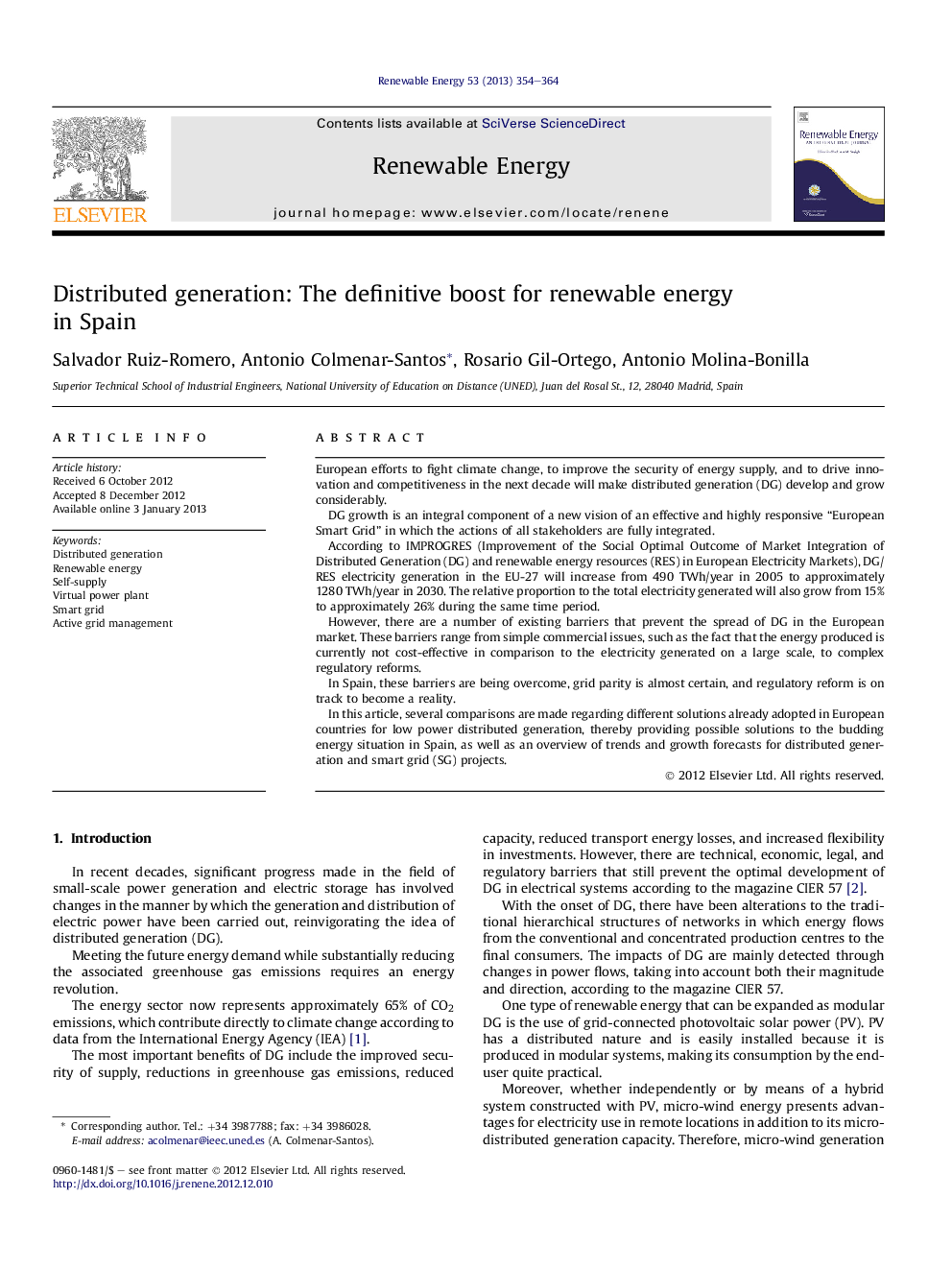| Article ID | Journal | Published Year | Pages | File Type |
|---|---|---|---|---|
| 300523 | Renewable Energy | 2013 | 11 Pages |
European efforts to fight climate change, to improve the security of energy supply, and to drive innovation and competitiveness in the next decade will make distributed generation (DG) develop and grow considerably.DG growth is an integral component of a new vision of an effective and highly responsive “European Smart Grid” in which the actions of all stakeholders are fully integrated.According to IMPROGRES (Improvement of the Social Optimal Outcome of Market Integration of Distributed Generation (DG) and renewable energy resources (RES) in European Electricity Markets), DG/RES electricity generation in the EU-27 will increase from 490 TWh/year in 2005 to approximately 1280 TWh/year in 2030. The relative proportion to the total electricity generated will also grow from 15% to approximately 26% during the same time period.However, there are a number of existing barriers that prevent the spread of DG in the European market. These barriers range from simple commercial issues, such as the fact that the energy produced is currently not cost-effective in comparison to the electricity generated on a large scale, to complex regulatory reforms.In Spain, these barriers are being overcome, grid parity is almost certain, and regulatory reform is on track to become a reality.In this article, several comparisons are made regarding different solutions already adopted in European countries for low power distributed generation, thereby providing possible solutions to the budding energy situation in Spain, as well as an overview of trends and growth forecasts for distributed generation and smart grid (SG) projects.
► Distribution networks are changing from traditional passive networks to active networks. ► Various projects for the advance of European Smart Grids have been developed. ► The self-supply of electricity and distributed generation, two key elements of solar PV in Spain. ► Wind energy production too significantly contributes to the reduction of fossil fuel imports.
